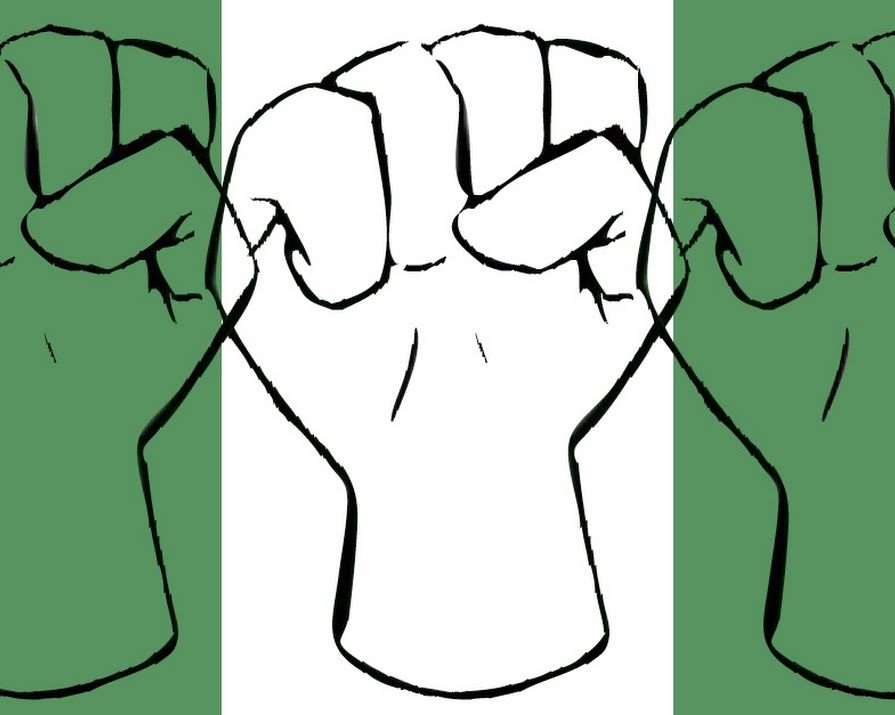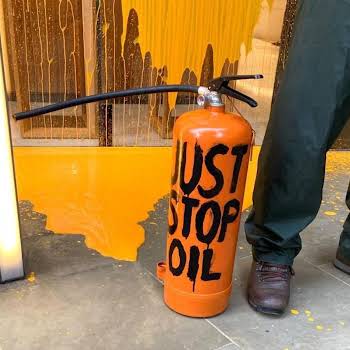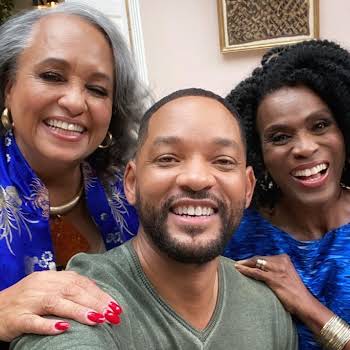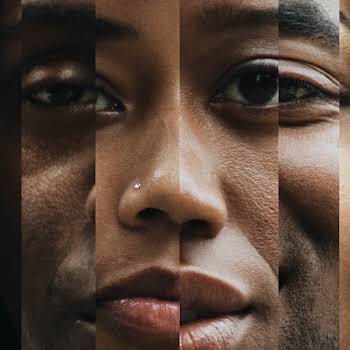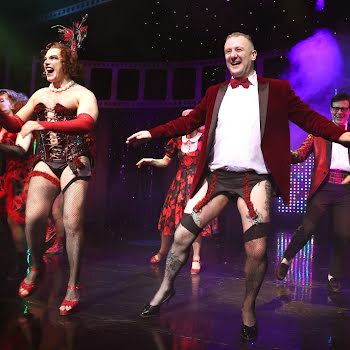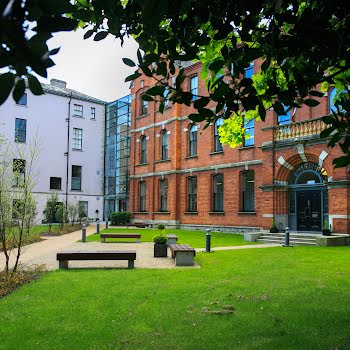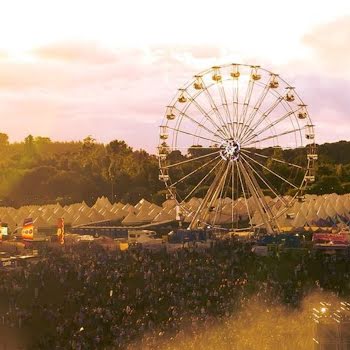What does #endSARS mean and what’s happening in Nigeria right now?
By Lauren Heskin
29th Oct 2020
29th Oct 2020
Here’s a brief introduction to the current situation in Nigeria and why thousands have been protesting to #endSARS.
I fyou’ve been avoiding the news lately (and who could blame you) you can be forgiven for thinking the #endSARS protests in Nigeria might be something to do with the pandemic. However, in this context SARS is much more insidious and far more difficult to defeat than an airborne virus or an acute respiratory illness and sadly, almost as deadly. SARS in Nigeria refers to the Special Anti-Robbery Squad, a covert arm of the Nigerian police.
So what exactly is happening?
A quick rundown of Nigeria’s modern history
For much of its long and complex history, Nigeria was made up of a series of independent empires, kingdoms states before being colonised by the British Empire in the mid-1800s. In 1900 it was amalgamated into two British Protectorates, the Southern Nigeria Protectorate and the Northern Nigeria Protectorate, before coming together to what we now know as Nigeria in 1914. British rule lasted here until the 1960s when a successful independence movement established the first Republic of Nigeria.
Since then, Nigeria’s democracy has proven very precarious. There have been a series of successful and violent military coups and a bloody Civil War that killed more than three million people, mostly from starvation. These tensions developed because of religious and cultural divisions, as well as the economic disparity between the north and south.
By the 1990s the country had been under military control for more than a decade, the economy was plummeting towards catastrophe (despite the recent influx of the oil money) and widespread government corruption.
The last military takeover ended in the last 1990s and Nigeria’s fourth and current Republic was established in 1999 when the former military head of state Olusegun Obasanjo was elected as President. Nigeria’s economy has stabilised since then, though violent outbreaks and threats of a coup continued through much of the early 2000s.
Nigeria’s current President is former military coup leader General Muhammadu Buhari, who was elected in 2015.
So what is SARS?
You may be wondering what Nigeria’s history has to do with SARS but it’s important to understand the context in which this group was formed. The Special Anti-Robbery Squad (SARS) was set up during a time when violent crime and corruption was rife, when the police, the military and the government had been operating as distinct and often rivalling factions for decades, with a complex and shifting chain of command.
SARS was created in 1992 as a covert arm of the police force to fill a void left in high-crime areas due to an ongoing dispute between the Nigerian police and the army over the police killing of a former colonel. It was set up to fight violent and organised crimes such as armed robberies, extortion, bribery and kidnapping, which were common in Nigeria throughout the 1980s and 1990s.
Originally intended to be an unarmed and unmarked intelligence agency, it quickly evolved to become a deadly clandestine force, using brutal and violent methods in pursuit of their targets, and SARS members have been accused of extortion, kidnapping, torture and murder of suspects, many of which have gone unpunished.
New Wave of Protests
Criticism of SARS is not exactly new either. Amnesty International reports have detailed numerous human right violations and in 2017 a series of protests umbrellaed under the hashtag #endSARS began campaigning. Though the government backed scrapping the squad, there was very little done to enact those promises and reports of SARS violence and abuse continued.
In early October 2020, a video was circulated online showing SARS officers dragging two already-unconcsious people from a hotel in Lagos. In the video one of them is then shot while lying on the ground.
This led to a deluge of other videos released showing SARS abuse and Nigerians began to protest under the #endSARS hashtag once again, this time drawing in Nigerian celebrities and social media stars to help raise awareness for the movement.
Despite government promises to dismantle SARS with immediate effect, they also announced the launch of SWAT, which would essentially pick up where SARS had left off. Many protesters felt that the promises did not go far enough and demanded a complete overhaul of the police system in Nigeria.
The protests this month have been met with police brutality and a number of deaths had already been recorded prior to October 20.
How did we move from reciting the national anthem & harmlessly waving flags to being shot at & killed?
20-10-2020 | exactly one week ago, the world witnessed people murdered as soldiers opened fire on peaceful protesters?#EndSARS #EndPoliceBrutality #LekkiMassacre pic.twitter.com/8Ug9willrf— EiE Nigeria (@EiENigeria) October 27, 2020
What happened on October 20?
In Lagos, a curfew was implemented in the city on October 20, which would force the end of the continuing protests. Peaceful protesters had been gathering at Lekki toll gate in the state for some weeks and were given just a few hours notice to evacuate the area in time for curfew, many of whom did not. Some protesters claimed officials removed security cameras in the area prior to the beginning of curfew and all the lights and advertisements were turned off.
Soon after curfew, the Nigerian armed forces arrived on the scene and began shooting, first into the sky and then upon the crowd. Some people live streamed the attack and Amnesty International claim at least 12 people have been confirmed dead, though other accounts are saying the number is closer to 40. Afterwards, government officials empathised with those injured but claimed that there had been no deaths and blamed social media users for aggravating the situation. The army has said the incident, now known as the Lekki Massacre, was “fake news” and that the army was not there, despite video evidence.
What is happening now?
The October 20 attack gained international press coverage and condemnation by everyone from US Democratic Presidential nominee Joe Biden to UK Foreign Secretary Dominic Raab.
The violent response has quelled the protests in Nigeria for the moment, but protesters, many of them in their teens and twenties, are hopeful that events this month will mark the beginning of the end of police brutality and abuse in Nigeria and that the lives lost will not have been in vain.
Featured image: the emblem of the #endSARS movement, a Black Lives Matter fist backed by the Nigerian flag.
Read more: ‘The Irish mammy is so similar to the Nigerian mum’: Up-and-coming singer Tolü Makay on roots, racism and music
Read more: ‘We live here. We work here. We belong here’: Groundbreaking research unveiled for undocumented in Ireland
Read more: Racism in Ireland is on the rise, but are we still listening?











